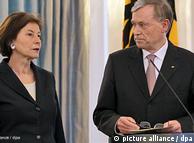Israel Holds Hundreds Seized During Raid on Flotilla

Pool photo by Uriel Sinai
By ISABEL KERSHNER and ALAN COWELL
Published: June 1, 2010
JERUSALEM — A day after Israeli commandoes raided an aid flotilla seeking to breach the blockade of Gaza, Israel held hundreds of activists seized aboard the convoy on Tuesday as news reports said activists may be planning a fresh attempt to ferry supplies to the Hamas-run enclave.
At the same time, the Israeli military said troops clashed with two militants who infiltrated from Gaza, killing them both. While such occurrences are almost routine along the volatile border between Israel and Gaza, the incident underscored the tensions seizing the region after Monday's confrontation at sea, which strained relations between Israel and the United States just as American-sponsored proximity talks involving Palestinians and Israelis were getting under way.
The developments in Israel and Gaza came hours after the United Nations Security Council condemned "acts" leading to the loss of life in Israel's operation in international waters on Monday that claimed the lives of nine civilians, many of them Turks. After hours of late-night negotiations, the Security Council urged an impartial inquiry — a call echoed in a separate forum by Russia and the European Union on Tuesday at a meeting of senior officials in the southern Russian city of Rostov-on-Don.
For its part, Turkey, once seen as Israel's most important friend in the Muslim world, recalled its ambassador and canceled planned military exercises with Israel as the countries' already tense relations soured even further. Prime Minister Benjamin Netanyahu of Israel was flying home after canceling a Tuesday meeting with President Obama.
Mr. Netanyahu defended the Israeli military's actions, saying the commandos, enforcing what Israel says is a legal blockade, were set upon by passengers on the Turkish ship they boarded and fired only in self-defense. The military released a video of the early moments of the raid to support that claim.
Israel said the violence was instigated by pro-Palestinian activists who presented themselves as humanitarians but had come ready for a fight. Organizers of the flotilla accused the Israeli forces of opening fire as soon as they landed on the deck, and released videos to support their case. Israel released video taken from one of its vessels to supports its own account of events.
On Tuesday, activists promised more confrontation. Greta Berlin of the Free Gaza Movement that organized the flotilla said that another cargo boat was heading to Gaza from the coast of Italy while a second boat carrying some 35 passengers was expected to join it, The Associated Press reported.
"This initiative is not going to stop," Ms. Berlin said from the group's base in Cyprus. "We think eventually Israel will get some kind of common sense. They're going to have to stop the blockade of Gaza, and one of the ways to do this is for us to continue to send the boats."
Reuters reported that Israel was holding hundreds of activists incommunicado in and around the port city of Ashdod, refusing to permit journalists access to witnesses who might contradict Israel's version of events. Around 50 of the passengers had volunteered to be deported but over 600 were refusing to be repatriated.
While the Israeli public seemed largely to support the navy, policy experts questioned preparations for the military operation, whether there had been an intelligence failure and whether the Israeli insistence on stopping the flotilla had been counterproductive. Some commentators were calling for the resignation of Ehud Barak, the defense minister.
"The government failed the test of results; blaming the organizers of the flotilla for causing the deaths by ignoring Israel's orders to turn back is inadequate," wrote Aluf Benn, a columnist for Haaretz, on the newspaper's Web site on Monday, calling for a national committee of inquiry. "Decisions taken by the responsible authorities must be probed."
The flotilla of six cargo ships and passenger boats was carrying 10,000 tons of aid for Gaza, where the Islamic militant group Hamas holds sway. But the raid and its deadly consequences have thrown Israel's policy of blockading Gaza into the international limelight. The statement by the United Nations Security Council early on Tuesday stressed "the need for sustained and regular flow of goods and people to Gaza."
Israel had vowed not to let the flotilla reach the shores of Gaza, where Hamas, an organization sworn to Israel's destruction, took over by force in 2007.
Named the Freedom Flotilla, and led by the pro-Palestinian Free Gaza Movement and a Turkish organization, Insani Yardim Vakfi, the convoy had converged at sea near Cyprus and set out on the final leg of its journey on Sunday afternoon. Israel warned the vessels to abort their mission, describing it as a provocation.
The confrontation began shortly before midnight on Sunday when Israeli warships intercepted the aid flotilla, according to a person on one boat. The Israeli military warned the vessels that they were entering a hostile area and that the Gaza shore was under blockade.
The vessels refused the military's request to dock at the Israeli port of Ashdod, north of Gaza, and continued toward their destination.
Around 4 a.m. on Monday, naval commandos came aboard the Turkish ship, the Mavi Marmara, having been lowered by ropes from helicopters onto the decks.
At that point, the operation seems to have gone badly wrong.
Israeli officials say that the soldiers were dropped into an ambush and were attacked with clubs, metal rods and knives.
An Israeli official said that the navy was planning to stop five of the six vessels of the flotilla with large nets that interfere with propellers, but that the sixth was too large for that. The official said there was clearly an intelligence failure in that the commandos were expecting to face passive resistance, and not an angry, violent reaction.
The Israelis had planned to commandeer the vessels and steer them to Ashdod, where their cargo would be unloaded and, the authorities said, transferred overland to Gaza after proper inspection.
The military said in a statement that two activists were later found with pistols taken from Israeli commandos. It accused the activists of opening fire, "as evident by the empty pistol magazines."
Erhan Sevenler/Anatolian Agency, via European Pressphoto Agency
On Sunday, before an Israeli raid, activists held a news conference aboard the Mavi Marmara, part of a flotilla taking aid to Gaza. More Photos »
Menahem Kahana/Agence France-Presse — Getty Images
After the Israeli raid, a speedboat escorted the ship, now with Israeli forces on board, to the port of Ashdod. More Photos »
Another soldier said the orders were to neutralize the passengers, not to kill them.
But the forces "had to open fire in order to defend themselves," the navy commander, Vice Adm. Eliezer Marom, said at a news conference in Tel Aviv, adding, "Their lives were at risk."
At least seven soldiers were wounded, one of them seriously. The military said that some suffered gunshot wounds; at least one had been stabbed.
Einat Wilf, a Labor Party member of Parliament who sits on the influential Foreign Affairs and Defense Committee, said that she had warned Mr. Barak and others well in advance that the flotilla was a public relations issue and should not be dealt with by military means.
The fatalities all occurred aboard the Mavi Marmara, a Turkish passenger vessel that was carrying about 600 activists under the auspices of Insani Yardim Vakfi, an organization also known as I.H.H. Israeli officials have characterized it as a dangerous Islamic organization with terrorist links.
Yet the organization, founded in 1992 to collect aid for the Bosnians, is now active in 120 countries and has been present at recent disaster areas like Haiti and New Orleans.
"Our volunteers were not trained military personnel," said Yavuz Dede, deputy director of the organization. "They were civilians trying to get aid to Gaza. There were artists, intellectuals and journalists among them. Such an offensive cannot be explained by any terms."
There were no immediate accounts available from the passengers of the Turkish ship, which arrived at the naval base in Ashdod on Monday evening, where nearly three dozen were arrested, many for not giving their names. The base was off limits to the news media and declared a closed military zone.
The Free Gaza Movement has organized several aid voyages since the summer of 2008, usually consisting of one or two vessels. The earliest ones were allowed to reach Gaza. Others have been intercepted and forced back, and one, last June, was commandeered by the Israeli Navy and towed to Ashdod. This six-boat fleet was the most ambitious attempt yet to break the blockade.
http://www.nytimes.com/2010/06/02/world/middleeast/02flotilla.html













Ouch.
Comment by zf — June 1, 2010 @ 9:59 am
#1, I guess he’d better put some ice on it.
Comment by TBlumer — June 1, 2010 @ 10:00 am
With Clinton that ice could go anywhere…
But really, all I’m saying is next time don’t hold back.
Comment by zf — June 1, 2010 @ 10:32 am
[...] This post was mentioned on Twitter by Sue H (Dee Bunk), Tom_Blumer. Tom_Blumer said: Bizzy: The Sestak Job Offer, Bill Clinton’s Credibility, and Bill Clinton’s Legacy: Bill Clinton’s involvement in … http://bit.ly/bq5ftI [...]
Pingback by Tweets that mention BizzyBlog -- Topsy.com — June 1, 2010 @ 11:22 am